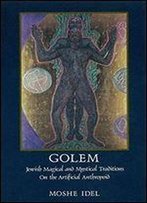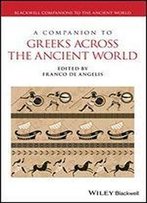
Epistemic Virtues In The Sciences And The Humanities (boston Studies In The Philosophy And History Of Science)
by Herman Paul /
2017 / English / PDF
3.5 MB Download
This book explores how physicists, astronomers, chemists, and
historians in the late nineteenth and early twentieth centuries
employed ‘epistemic virtues’ such as accuracy, objectivity, and
intellectual courage. In doing so, it takes the first step in
providing an integrated history of the sciences and humanities.
It assists in addressing such questions as:
This book explores how physicists, astronomers, chemists, and
historians in the late nineteenth and early twentieth centuries
employed ‘epistemic virtues’ such as accuracy, objectivity, and
intellectual courage. In doing so, it takes the first step in
providing an integrated history of the sciences and humanities.
It assists in addressing such questions as:
What kind of perspective would enable us to compare organic
chemists in their labs with paleographers in the Vatican
Archives, or anthropologists on a field trip with mathematicians
poring over their formulas?
What kind of perspective would enable us to compare organic
chemists in their labs with paleographers in the Vatican
Archives, or anthropologists on a field trip with mathematicians
poring over their formulas?While the concept of epistemic virtues has previously been
discussed, primarily in the contexts of the history and philosophy
of science, this volume is the first to enlist the concept in
bridging the gap between the histories of the sciences and the
humanities. Chapters research whether epistemic virtues can serve
as a tool to transcend the institutional disciplinary boundaries
and thus help to attain a ‘post-disciplinary’ historiography of
modern knowledge. Readers will gain a contextualization of
epistemic virtues in time and space as the book shows that scholars
themselves often spoke in terms of virtue and vice about their
tasks and accomplishments.
While the concept of epistemic virtues has previously been
discussed, primarily in the contexts of the history and philosophy
of science, this volume is the first to enlist the concept in
bridging the gap between the histories of the sciences and the
humanities. Chapters research whether epistemic virtues can serve
as a tool to transcend the institutional disciplinary boundaries
and thus help to attain a ‘post-disciplinary’ historiography of
modern knowledge. Readers will gain a contextualization of
epistemic virtues in time and space as the book shows that scholars
themselves often spoke in terms of virtue and vice about their
tasks and accomplishments.
This collection of essays opens up new perspectives on questions,
discourses, and practices shared across the disciplines, even at
a time when the neo-Kantian distinction between sciences and
humanities enjoyed its greatest authority. Scholars including
historians of science and of the humanities, intellectual
historians, virtue epistemologists, and philosophers of science
will all find this book of particular interest and value.
This collection of essays opens up new perspectives on questions,
discourses, and practices shared across the disciplines, even at
a time when the neo-Kantian distinction between sciences and
humanities enjoyed its greatest authority. Scholars including
historians of science and of the humanities, intellectual
historians, virtue epistemologists, and philosophers of science
will all find this book of particular interest and value.











